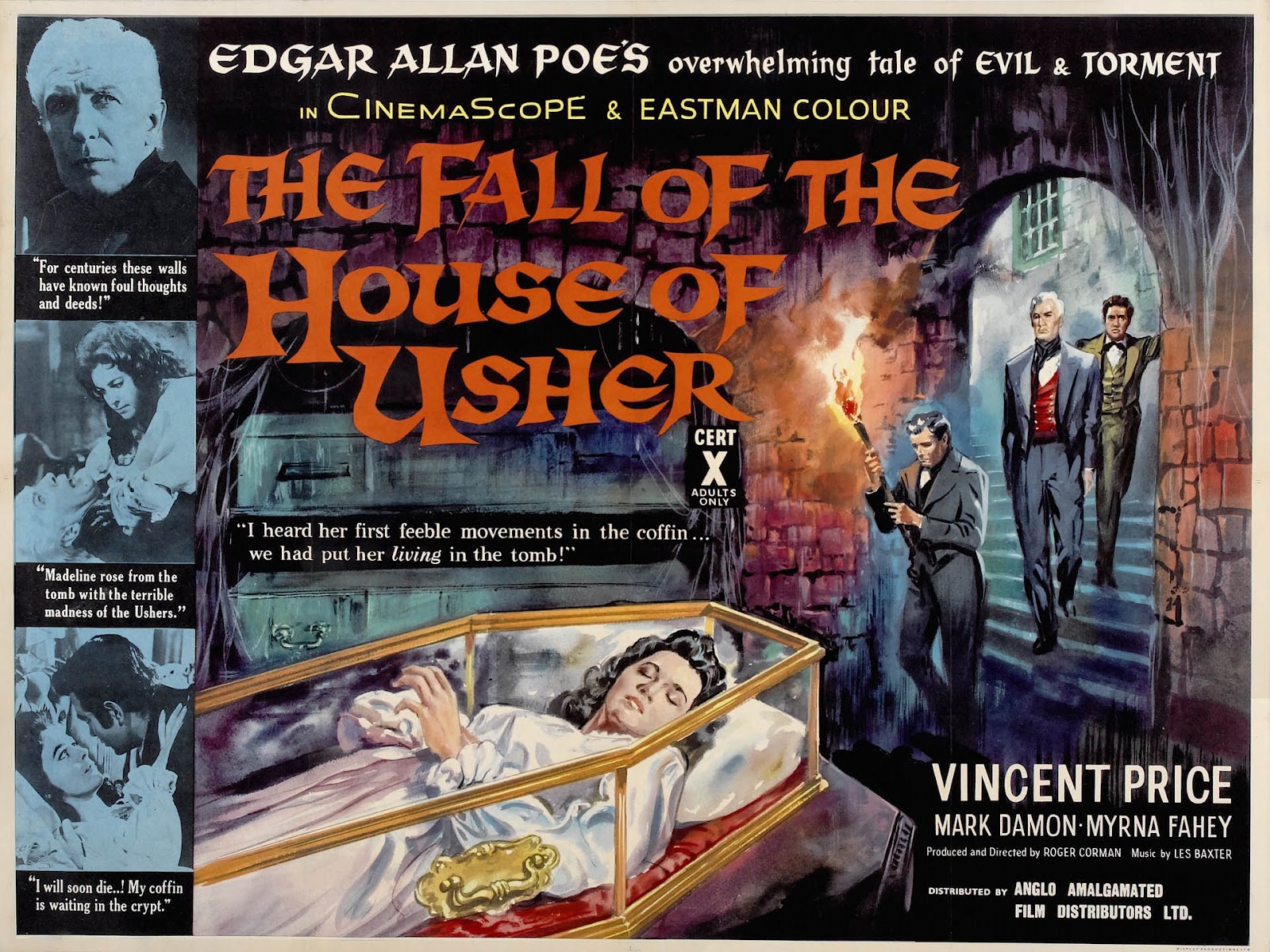
Edgar Allan Poe (born Edgar Poe; January 19, 1809 – October 7, 1849) was an American author, poet, editor, and literary critic, considered part of the American Romantic Movement. Best known for his tales of mystery and the macabre, Poe was one of the earliest American practitioners of the short story and is generally considered the inventor of the detective fiction genre. He is further credited with contributing to the emerging genre of science fiction.[1] He was the first well-known American writer to try to earn a living through writing alone, resulting in a financially difficult life and career.
-''The Fall of the House of Usher''
The story begins with the unnamed narrator arriving at the house of his friend, Roderick Usher, having received a letter from him in a distant part of the country complaining of an illness and asking for his help. Although Poe wrote this short story before the invention of modern psychological science, Roderick's condition can be described according to its terminology. It includes a form of sensory overload known ashyperesthesia (hypersensitivity to light, sounds, smells, and tastes), hypochondria (an excessive preoccupation or worry about having a serious illness), and acute anxiety. It is revealed that Roderick's twin sister, Madeline, is also ill and falls into cataleptic, deathlike trances. The narrator is impressed with Roderick's paintings, and attempts to cheer him by reading with him and listening to his improvised musical compositions on the guitar. Roderick sings "The Haunted Palace", then tells the narrator that he believes the house he lives in to be alive, and that this sentience arises from the arrangement of the masonry and vegetation surrounding it.
Midtern Explaination
--> sense, supernal beauty
self-reliant(American literature made simple)
In the history of American architecture and the arts, the American Renaissance was the period ca 1876–1917 [1] characterized by renewed national self-confidence and a feeling that the United States was the heir to Greek democracy, Roman law, and Renaissance humanism. The American preoccupation with national identity (or New Nationalism) in this period was expressed by modernism andtechnology as well as academic classicism
In the United States in the 19th century, Manifest Destiny was the widely held belief that American settlers were destined to expand across the continent. Historians have for the most part agreed that there are three basic themes to Manifest Destiny:
1. The special virtues of the American people and their institutions;
2. America's mission to redeem and remake the west in the image of agrarian America;
3. An irresistible destiny direction to accomplish this essential duty.
The American Dream is a national ethos of the United States, a set of ideals in which freedom includes the opportunity for prosperity and success, and an upward social mobility achieved through hard work. In the definition of the American Dream by James Truslow Adams in 1931, "life should be better and richer and fuller for everyone, with opportunity for each according to ability or achievement" regardless of social class or circumstances of birth.[1]
The idea of the American Dream is rooted in the United States Declaration of Independence which proclaims that "all men are created equal" and that they are "endowed by their Creator with certain inalienable Rights" including "Life, Liberty and the pursuit of Happiness.
An inferiority complex is a lack of self-worth, a doubt and uncertainty, and feeling of not measuring up to society's standards. It is often subconscious, and is thought to drive afflicted individuals to overcompensate, resulting either in spectacular achievement or extreme antisocial behavior. The term was coined to indicate a lack of covert self esteem.For many, it is developed through a combination of genetic personality characteristics and personal experiences.
Ralph Waldo Emerson (May 25, 1803 – April 27, 1882) was an American essayist, lecturer, and poet, who led theTranscendentalist movement of the mid-19th century. He was seen as a champion of individualism and a prescient critic of the countervailing pressures of society, and he disseminated his thoughts through dozens of published essays and more than 1,500 public lectures across the United States.
-Colloquial language
行話(錯字OR口語)
-Exam
-->examination
-->check
-Charon 冥河度者
In Greek mythology, Charon or Kharon is the ferryman of Hades who carries souls of the newly deceased across the rivers Styx and Acheron that divided the world of the living from the world of the dead. A coin to pay Charon for passage, usually an obolus or danake, was sometimes placed in or on the mouth of a dead person. Some authors say that those who could not pay the fee, or those whose bodies were left unburied, had to wander the shores for one hundred years. In thecatabasis mytheme, heroes – such as Heracles, Orpheus, Aeneas, Dante, Dionysus and Psyche – journey to the underworld and return, still alive, conveyed by the boat of Charon.
-epiphany
神靈的顯現
-c.f.
successive 接替的(adj.)
successful 成功的(adj.)
succession 接續(n.)
-c.f.
allegory(政治、宗教)
fable(短篇、常使用動物、EX:伊索寓言)
parable(耶穌的小故事)